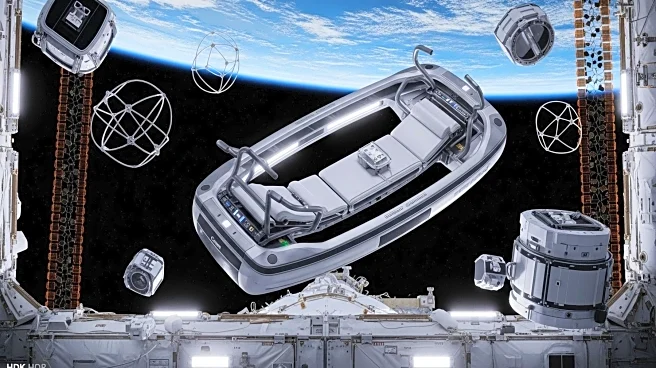What's Happening?
The International Space Station (ISS) is focusing on exercise research and space physics to advance health both on Earth and in space. NASA astronaut Mike Fincke conducted the Cardiobreath exercise study, measuring health data while pedaling on the station's exercise cycle. The data aims to inform fitness programs for long-term space missions. Additionally, Fincke worked on a physics study related to pharmaceutical manufacturing and 3D printing techniques in space.
Why It's Important?
Research conducted on the ISS provides unique insights into phenomena that cannot be studied on Earth, potentially leading to advancements in health treatments and commercial innovations. Understanding the effects of microgravity on the human body is crucial for developing strategies to protect astronaut health during extended missions. The findings may also contribute to medical advancements and industrial applications on Earth.
What's Next?
The ISS will continue to host experiments and studies that explore the impact of microgravity on various biological and physical processes. Researchers will analyze the data to develop new health protocols and technologies for space travel. The station's role as a microgravity lab will support ongoing scientific investigations and collaborations with international partners.
Beyond the Headlines
The ISS serves as a platform for international cooperation, fostering collaboration among scientists and researchers worldwide. The research conducted on the station contributes to a broader understanding of space health and technology, supporting NASA's mission to explore and innovate for humanity's benefit. The findings may lead to new opportunities for commercial and industrial applications.









